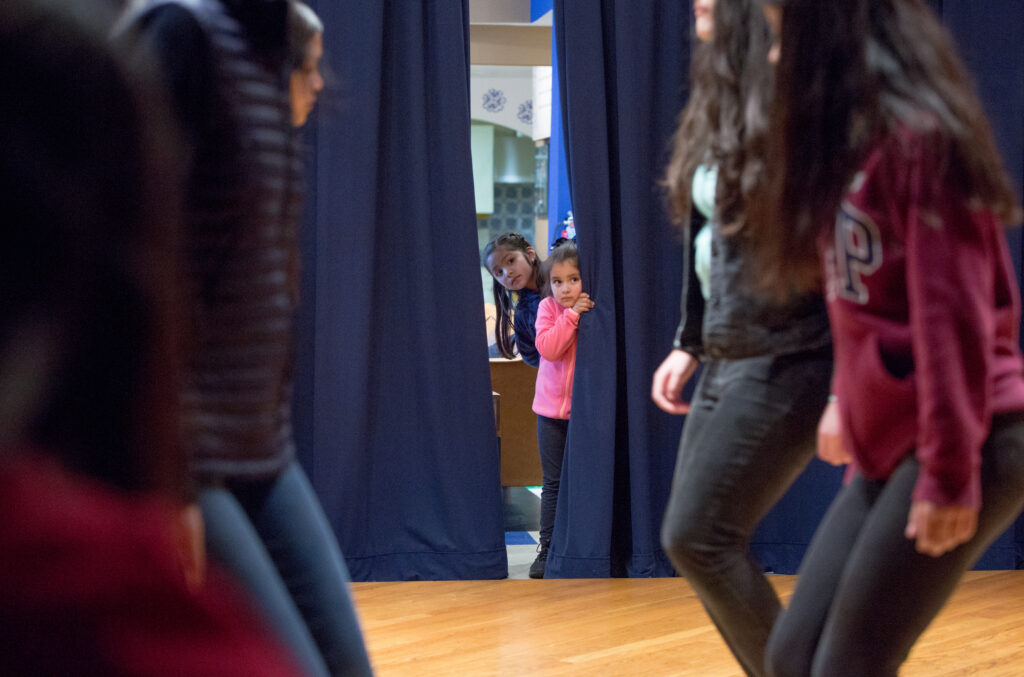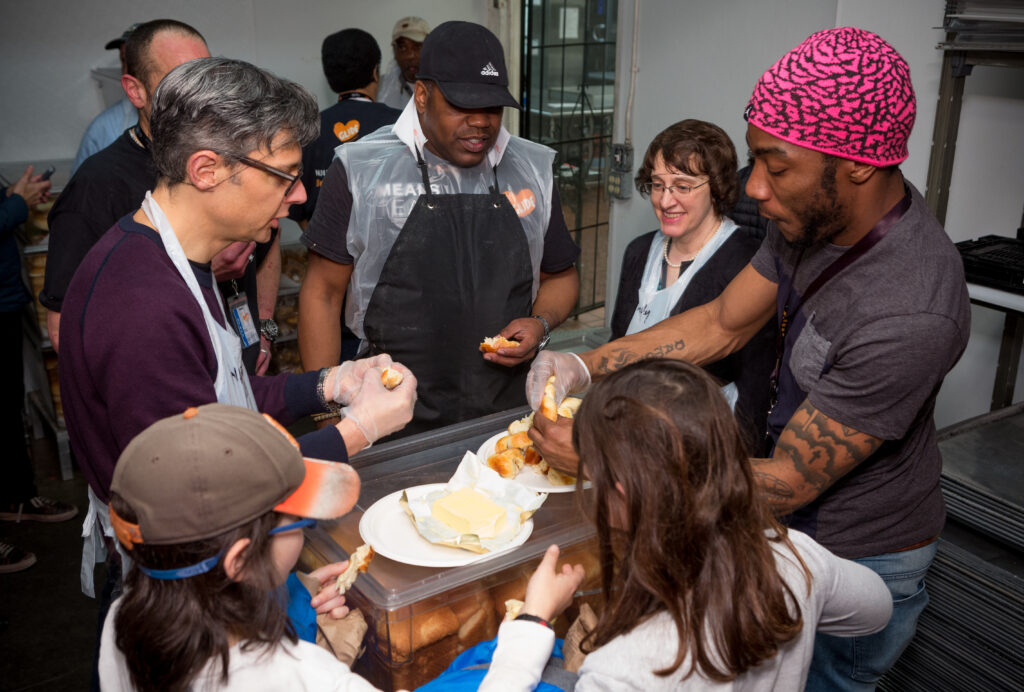Honoring Time: Grantseeker Compensation

How can funders honor the time that grantseekers spend on application processes in instances where the nonprofit is not selected for a grant? In cases where they are, will the grant award cover the time and expense the grantee spent? Read on to find out how the Walter and Elise Haas Fund is addressing those questions.
Grantmakers grapple with how to value the time a grantseeker spends completing the grant application, wrangling the financials, and perfecting work samples. Will the grant award fully cover the time and expense? We hope it will, but we pause when the request is declined: was that a sunk cost for the applicant? Will they recoup the investment they made by presenting the materials to another funder, this time successfully? Or is it really just a gamble?
At the Walter and Elise Haas Fund, we’re thinking those questions through. We hover over our grants management system analytics, our rankings at Grant Advisor, and the Center for Effective Philanthropy’s Grantee Perception Report to see if people are being compelled to spend inordinate amounts of time making their case to us. Spurred by global pandemic and racial justice reckoning, we interrogated what we ask of grantseekers, and what we ask of ourselves, when assembling insights and evidence to support a great grant recommendation. We were also inspired by a model in our own backyard.
Time is Money: Documentation Grants
The Creative Work Fund serves as our pooled funder grantmaking program that supports collaborations between individual artists and nonprofits of all stripes to create new work. The Fund had been supporting collaborations with traditional artists with $500 “documentation grants” to help the artists create work samples for our review panel. For many folk artists, especially those working outside digital culture and deeply in their cultural traditions, this was the first time they had access to explicit funds to document their work. In 2022, our learning about these “mini-grants” inspired us to grant $500 to every applicant invited to submit a full proposal. Awarded automatically with the invitation, we used the applicant work sample as evidence of money well-spent and invited, not required, recipients to tell us how funds were used.
The top response: Time.
Time for the artist to select materials. Time for the development team to fashion the story. Time for the media professional to make the work sample. Time, for the purposes of this grant, was literally money.
That same year we invited 10 nonprofits to enter an extensive vetting process with us for a new line of grantmaking. We again leaned on our experience with Creative Work Fund and this time budgeted a larger amount —$3,000 each— to cover the high-touch, deep dive, three-month inquiry into how each organization inspires and propels the work to close racial and gender wealth gaps. Poised to invest nearly $25M over seven years, our hunch was that granting $30K (0.12% of our grant budget) to cover the costs of talking with us would be a move. It was. Organizations had time to devote to our conversation. They felt fairly compensated for the time spent. We learned deeply and crafted our recommendations with confidence.

Walter & Elise Haas Fund Arts Grantee Los Cenzontles Mexican Art Center dance class. A nonprofit cultural arts academy, a band, a production studio, and a community space for youth and families, working together to amplify Mexican roots in the Bay Area and beyond
(photo by Margot Duane, 2019)
The Value of Community Member Expertise
We also knew that of the 10 organizations we were learning from, we would only be recommending seven for grants. The three declined applicants were not in the same category as unsolicited letters of inquiry. We knew we’d be in the same rooms, walking the same paths, and ultimately partnering with them in different ways as our grantmaking unfolded. As a gesture of solidarity with their work, not a consolation prize, we made a $25K unrestricted award (no conditions, no reports) to each of the three organizations not advancing in our program. We knew the amount was symbolic (less than 1% of the full grant award), but our values compelled us to give in honor of expertise and insight, just as we give to community members participating in grant design and selection of grantees, and individuals providing due diligence insights into applicant organizations.
In the case of community member expertise, the amount for honoraria considers local living wage (we use https://livingwage.mit.edu/) and is sensitive to individual income limits. We don’t want ad hoc participation in our work to tip someone out of their social safety net eligibility. We tend not to drop below $75 per hour and top out at the “philanthropy rate” of $300 per hour.
If we don’t use these methods for compensating grantseeker or community member time, it’s because the process to apply for our funding is significantly streamlined through quick-fill in letters of inquiry, renewals that combine reports with new requests, and staff-generated proposals based on conversations with the grantseeker. We rarely ask for a heavy lift before we already understand the fit and are ready to grant.

Walter & Elise Haas Fund Safety Net Grantee Glide Foundation – Sharing Challah in the Kitchen
The Glide Foundation is a nationally recognized center for social justice, dedicated to fighting systemic injustices, creating pathways out of poverty and crisis, and transforming lives.
(photo by Margot Duane, 2019)
Lessons from Peer Funders
The Walter & Elise Haas Fund is not alone in seeking to honor grantseeker time spent in the “speculative” part of the process. We’re inspired by peers as diverse as the Center for Disaster Philanthropy, United Way of Olmsted County, and the James Irvine Foundation for informing our practice. Their examples and our experience helped us develop these takeaways:
- Consider the value of the information grantseekers provide to your grantmaking writ large.
- Collect and analyze the data: How much time are grantseekers and community spending in your process?
- Operationalize: Budget for grantseeker and community participation as part of the universe of consultant expertise brought to your grantmaking.
- Reflect: Invite feedback on how honorable the honoraria felt to your grantseekers, grantees, and community.
- Iterate! A long-term commitment to finding how this works in each of our foundations will transform our relationships with grantseekers and inspire and inform the sector.
Please note: This piece builds off a question on PEAK Grantmaking’s online member discussion forum, CONNECT. We encourage you to join PEAK through a complimentary Individual Membership—open to all grantmaking professionals—and participate in the exchange of ideas, advice, and lessons learned with your colleagues.
Suki O’Kane is the Administrator at the Walter and Elise Haas Fund.
The views and opinions expressed in individual blog posts are those of the author(s) and do not necessarily reflect the official policy or position of the National Center for Family Philanthropy.
